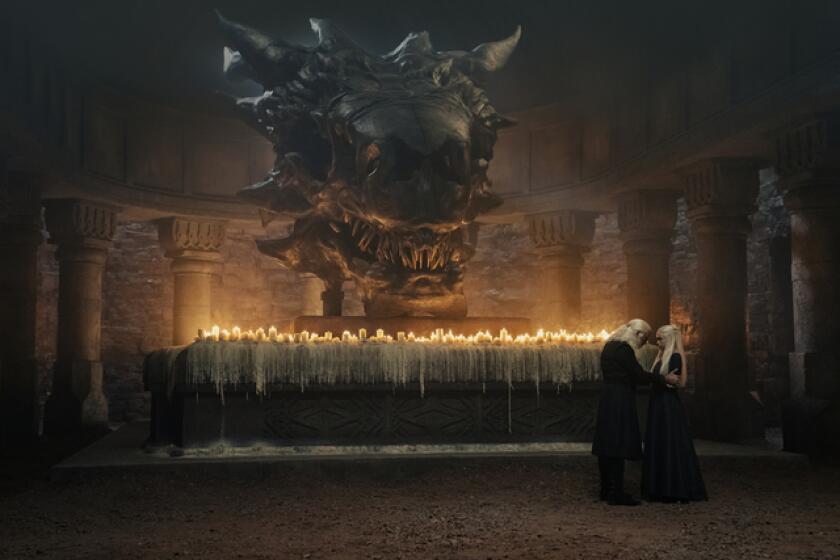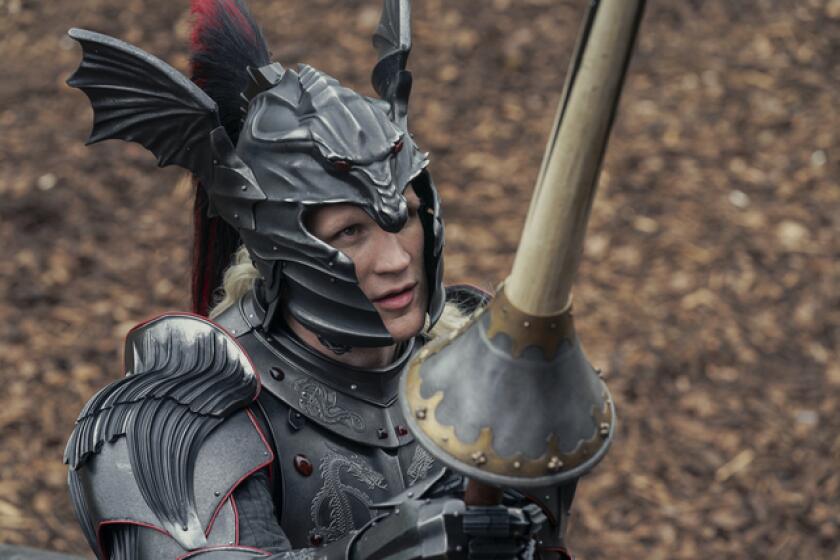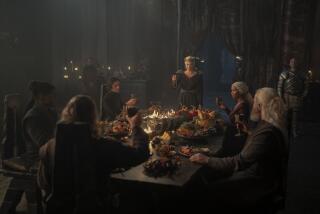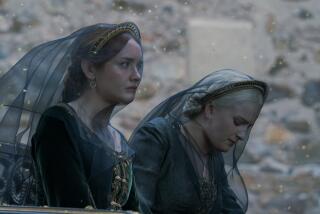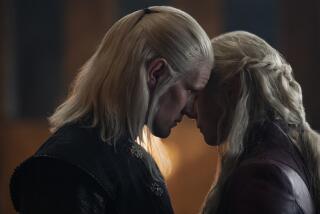‘House of the Dragon’ star: How are dragons more plausible than ‘a rich Black guy’?
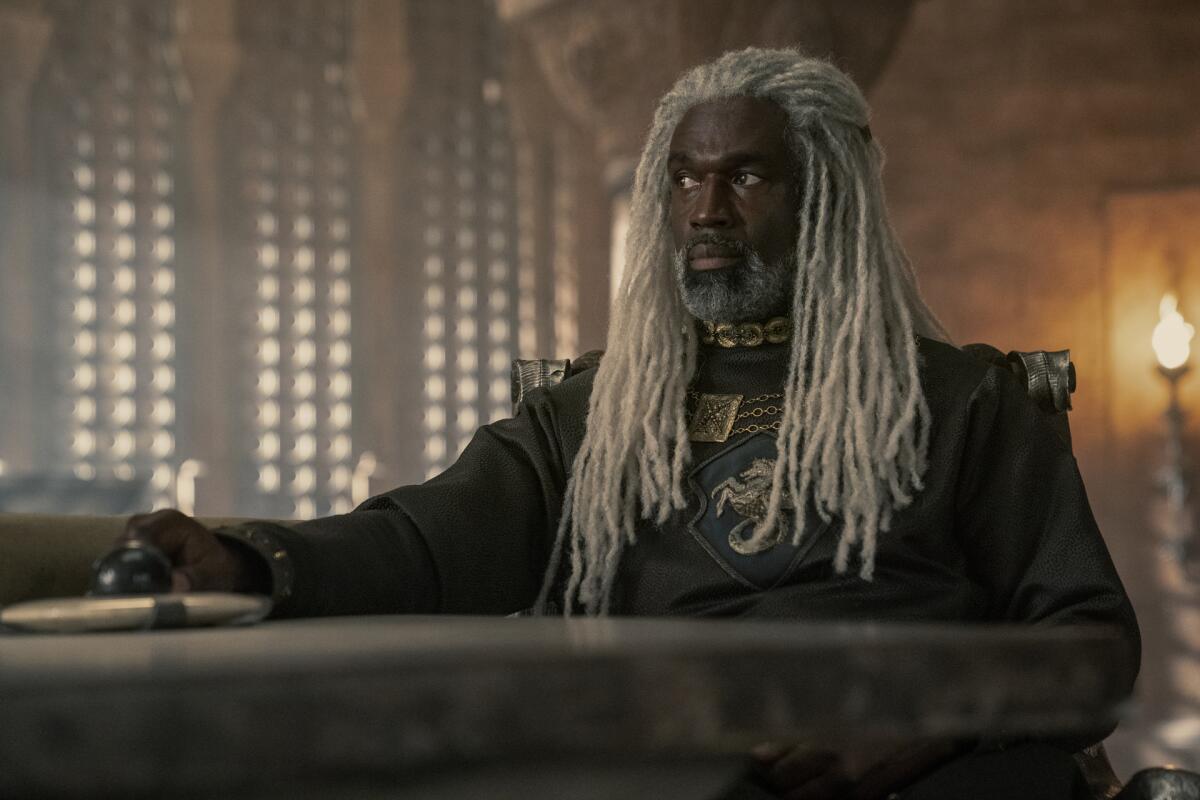
“House of the Dragon” star Steve Toussaint addressed the racism he faced after being cast in the “Game of Thrones” prequel, saying that seeing a “rich Black guy” in a fantasy series is “beyond the pale” for some.
The “Small Axe” and “Judge Dredd” star plays Lord Corlys Velaryon in the sprawling drama, which premiered Sunday on HBO. But long before the first episode made HBO Max crash, Toussaint’s casting set off another backlash and reignited the conversation about diverse casting in period dramas.
Delving further into the topic in a Men’s Health interview published Monday, the 57-year-old Brit said he’s also been told that “it’s great to have this representation” on the show. Prior to that, however, he revealed that he “was racially abused on social media” but wouldn’t allow it to get to him.
In Screen Gab No. 48, we explain how ‘House of the Dragon’ relates to ‘Game of Thrones,’ recommend two titles to check out this weekend, and more.
“First of all, people of color existed in the past,” interviewer Hanna Flint said in their Q&A. “Secondly, if you care more about a guy’s skin color than the fact that everyone’s miraculously got gorgeous teeth, it just shows your prejudice.”
“That’s so true. So many people are basing their idea of the history of this country on a few films and stuff that were made in the ‘50s, ‘60s and ‘70s, which don’t bear any resemblance to the truth,” Toussaint said. “Historically, people of my hue and your hue, we didn’t just turn up here in the ‘70s or the ‘60s. There was a point when the ruler of his country, ‘the Caesar,’ was an African man. There are street names that tell you there were people who looked like us in this country even then, but for some reason, it seems to be very hard for people to swallow.”
But for some, Corlys’ upward mobility and stature are less believable than some of the wilder supernatural happenings of the saga.
“And as you said, they are happy with a dragon flying. They’re happy with white hair and violet-colored eyes, but a rich Black guy? That’s beyond the pale,” he said.
That “rich Black guy” is also known as “the Sea Snake” in the sprawling series. Toussaint’s Lord Corlys is of Valyrian descent and — nearly two centuries before the drama in “Game of Thrones” — is the richest man in Westeros. He built up the largest navy in the Seven Kingdoms with the fortune he made as a seafarer and is married to Princess Rhaenys (Eve Best) of the noble House Targaryen, from which the series title is derived. He also sits on the governing council where much of the series premiere’s political intrigue unfolds.
Which characters matter? Which Houses are a factor? Why are their names so hard to spell? We have viewers of the ‘Game of Thrones’ prequel covered.
“[U]ltimately, for me, what his engine is, is the fact that he’s trying to elevate his family, elevate his name. When his wife was passed over for the crown, he seems to take it that much more personally than she does. Ambition is his driving force for most of the season,” Toussaint said.
Toussaint is just the latest actor of color to address the racism he faced just for being cast in a major property. Others include Moses Ingram of Disney+ series “Obi-Wan,” and Kelly Marie Tran and John Boyega who dealt with similar online abuse over their roles in the newer “Star Wars” films.
However, Toussaint seems hopeful about what “House of the Dragon” has to say about the world.
“A TV show or film, wherever it’s set, it reflects the time that it was made. One of the criticisms of ‘Thrones,’ particularly the early seasons, was that there was a feeling of exploitativeness, particularly for the women,” he said.
Later, he added: “The fact that we have women directors and women writers, there’s less of the exploitative thing. There is violence and sex, but the crux of this is the conflict between two ladies [Princess Rhaenyra and her friend Alicent Hightower]. Whether that reflects the growing status and power of women in our society, I don’t know. It’s still about relationships. It’s still about people trying to maneuver. It’s still about whose eyes you’re looking into when you’re speaking. I guess I’ll have to watch all of it and then come back to you.”
More to Read
The complete guide to home viewing
Get Screen Gab for everything about the TV shows and streaming movies everyone’s talking about.
You may occasionally receive promotional content from the Los Angeles Times.
